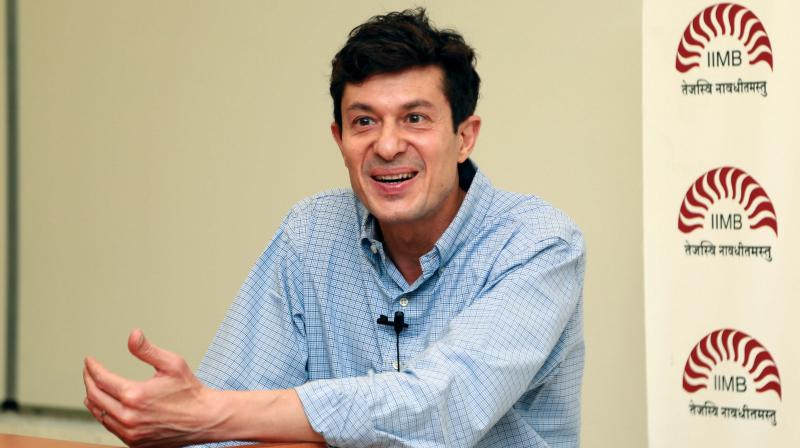Transfer cash when women wed: Kaivan Munshi
Explaining the disturbing phenomenon of intensified sex selection on the grounds of caste-based marriages in the country.

BENGALURU: Explaining the disturbing phenomenon of intensified sex selection on the grounds of caste-based marriages in the country, while drawing parallels to economic development, Prof. Kaivan Munshi on Friday called for designing an optimal policy to overcome the deep-rooted social menace. Prof Munshi, a Frank Ramsey Professor of Economics at the University of Cambridge, England, said, “Ensuring that the cash transfer schemes directly target the girls when they get married (instead of going through their parents) and increasing female participation in the labour force are effective ways to address the root cause of this problem (sex selection).”
Delivering a public lecture on ‘Missing Girls’ at the IIM-B as part of the Infosys Prize Lecture Series organised by the Infosys Science Foundation, he said that sex selection is not confined to a few castes or a few districts, as commonly believed, but is observed to be a more pervasive phenomenon among relatively wealthy households irrespective of castes. Speaking about the patrilocal character of marriages and the practice of dowry which continues in our society in different forms, the 2016 Infosys Prize Laureate for Social Sciences said, “The amount of money given as dowry is four times the annual income of the families in rural India when interestingly even banks in the US give out only 2 to 2.5 times of what a family earns annually as housing loans.” He suggested that investing more in the girl child’s education rather than spending a huge sum on dowry will also better the situation. Prof. Munshi is also a Research Associate of the Harvard-Cambridge Joint Centre for History and Economics, and research fellow at the Institute for Fiscal Studies (IFS), the Institute for the Study of Labor (IZA), the Centre for Economic Policy Research (CEPR) and the Centre for Research and Analysis of Migration (CReAM).

